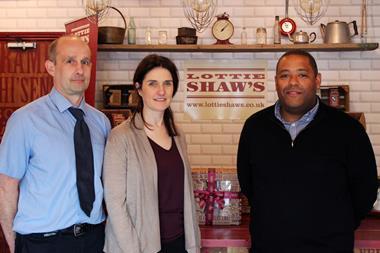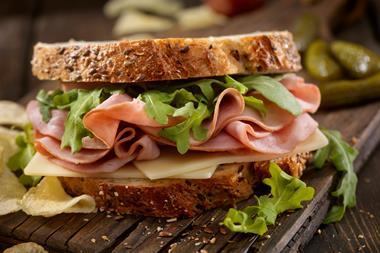Suppliers will have breathed a sigh of relief yesterday at the decision by the CMA to block the Sainsbury’s/Asda merger.
While the writing seemed to be on the wall since February, when the CMA’s initial findings suggested the deal could push up prices and reduce quality, the confirmation will have been welcomed by manufacturers already facing challenges such as Brexit and wafer-thin margins.
As this week has also shown us, even the nation’s biggest bakery manufacturers aren’t immune to such pressures, with Allied Bakeries losing its contract to supply Tesco after seeking to put up prices.
First announced last April, had the Sainsbury’s/Asda merger gone ahead it would have seen more than 2,800 Sainsbury’s, Asda and Argos stores come together, plus their retail websites, to create a grocery, general merchandise and clothing retail group with combined revenues of more than £50bn.
The CMA ruled this would have lessened competition at both a national and local level for shoppers, possibly resulting in price rises, reductions in the quality and range of products available, or a poorer overall shopping experience.
This was despite an announcement by the retailers – which was unlikely to have been warmly received by suppliers – that they would deliver £1bn of lower prices annually by the third year of the merger.
As one senior baking industry figure told us last year it: “I am sure that, along with all suppliers, the comments of savings will ring alarm bells in the baking industry, as it implies they believe that – as the number two and three retailers in the UK – they don’t already buy as well as possible.”
Little wonder, then, that the Food & Drink Federation (FDF) described yesterday’s decision as “the only logical outcome”.
“This proposed merger was a bad deal for consumers and for food and drink manufacturers,” said FDF chief operating officer Tim Rycroft.
“Given the evidence provided by FDF members (and others) of substantial competition harms, it is hard to see how the CMA could have come to any other decision. We are pleased the concerns of food and drink manufacturers have been heard and acted upon.”
The Federation of Bakers, meanwhile, said “the CMA has given a well-reasoned argument for reaching the decision not to allow the merger to go ahead”.
Further up the supply chain, the National Farmers’ Union (NFU) also welcomed the outcome.
“The NFU’s key concern about the proposed merger has always been the potential impact it could have on our members,” said NFU director general Terry Jones. The union is hoping to meet with both Sainsbury’s and Asda to understand what the decision will mean moving forward – something many in the industry would like to know.
An appeal against the decision has been ruled out, with Sainsbury’s and Asda stating they have terminated the transaction.
Clearly disgruntled, Sainsbury’s CEO Mike Coupe yesterday said the CMA had effectively taken £1bn out of customers’ pockets, adding he was confident in Sainsbury’s business strategy.
Meanwhile, Asda owner Walmart said its focus would now be on “continuing to position Asda as a strong UK retailer delivering for customers”, and that it would ensure Asda has the resources it needs to achieve that.
But with the Tesco/Booker merger and market share growth of the discounters continuing to reshape the grocery industry, further merger or acquisition activity seems inevitable. And it’s a safe bet that it’s only a matter of time before bakery suppliers will be wondering what that deal – whatever form it takes – will mean for them.



































No comments yet